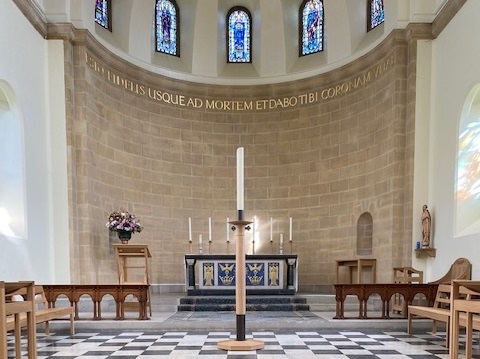The Haileybury Society is saddened to learn of the the death of Eric Alexander (B 49) on 2nd November 2018, aged 86. After Haileybury, Eric went on to enjoy a life filled with museum work, culture, theatre performance and design, making friends from all around the world.
Eric Alexander – as remembered by his family
Eric Alexander’s life’s work was in theatre and the arts, as a museum man, as lecturer in Arts Management at the Reinwardt Academie/Amsterdam School of the Arts, as a founding member and Secretary of the International Federation of Theatre Research (IFTR), and as a writer and advocate for theatre design, scholarship and archiving.
From 1965 to 1984 he held a number of posts at the Toneelmuseum or Dutch Theatre Museum, later re-named the Netherlands Theatre Institute, firstly as curator, then director, as general coordinator and lastly as director of collections. He played a very significant part in developing and enlarging the current theatre collection, now held in the Bijzondere Collecties [Special Collections] of the University of Amsterdam.
Early years
Eric was born in Schiedam (25 July 1932), went to secondary school in Arnhem and had the lucky privilege to also spend time at the Haileybury College in Hertfordshire, England. Subsequently he studied classics at the University of Leiden. There, he was Preases of the literary faculty, and was an active member of Het Studententoneel/The Student Theatre. His love for the classics and the theatre was a mainstay in his life.
Wherever he travelled, he sought out and visited theatre buildings, whether ancient, historical or contemporary, often using his charm to get rare ‘behind the scenes’ access. In Leiden he met Miek de Jager and they married in 1959. Setting up house together they began by buying a beautiful old wall clock of the eighteenth century. Eric’s wife died very prematurely, a tragedy he bore with great courage, and shared with his two sons.
Classics teacher looks to acting
Eric began his working life teaching classics at the Erasmiaans Gymnasium in Rotterdam, but then seized the role of curator of the Toneelmuseum in Amsterdam. He significantly expanded the collection and public awareness of its value by purchasing posters, manuscripts, designs, props and pictures at European auctions and creating public exhibitions on Dutch and international theatre and performance.
He built up good personal relationships with actors, directors and scenographers, which enabled him to acquire and safeguard their archives for the museum upon retirement or passing away. ‘We have him to thank for at least a third of the current collection’, says former commercial leader and director of the Theatre Institute Berend Jan Langenberg.
Popular exhibitions
Eric’s exhibitions in the museum at the Herengracht in Amsterdam included a very popular exhibition on Wim Sonneveld (one of the “Great Three” Dutch cabaret artists) and exhibitions on scenographers such as Wim Vesseur and renowned Czech lighting innovator Josef Svoboda. In the world of theater Eric was an omnivore, with special interests ranging from set and costume design, theatre staging traditions, buildings, and historical prints.
In 1967 Eric negotiated his way through red tape and cold war barriers in order to cross the border of communist Czechoslovakia with a truck bearing the first Dutch National exhibition entry at the Prague Quadrennial International exhibition of Theatre Design and Architecture (PQ). Over the following twenty years, Eric was repeatedly invited to be a member of the PQ jury, awarding individual and international prizes for excellence in theatre design and architecture.
It has been said of him by Mirka Pot??kova of the Arts and Theatre Institute Prague that, over the years, Eric became the most important foreign person in Czech culture, especially in theatre.
Achievements
Eric was co-editor of the scientific theatre-historical magazine Scenarium (1977-1985) and was active in a number of local and global organisations. He was secretary of the Dutch Museum Council.
He was a founding member and secretary general of the FIRT/IFTR (International Federation for Theatre Research), as well as an active member of SIBMAS (International Association of Libraries, Museums, Archives and Documentation Centres of the Performing Arts). From 1977 to 2002, together with Liliana Alexandrescu (no relation), he prepared and circulated the FIRT/IFTR-SIBMAS Bulletin. He was also active in the OISTAT (International Organisation of Sceneographers, Theatre Architects and Technicians).
After the Theatre Museum merged with the Dutch chapter of the International Theatre Institute and the Stichting Theater Klank en Beeld (Foundation for Theatre Sound and Vision) in the seventies, the character of the now ‘Dutch Theatre Institute’ changed, with cultural heritage conservation becoming less important.
Lecturing in Amsterdam
After leaving the Dutch Theatre Institute Eric taught at the Reinwardt Academy / Amsterdam University of the Arts, where he was one of the initiators of the Interfaculty of Cultural Business Management. His students especially appreciated his deep practical knowledge and experience, and the field trips he was able to organise, thanks to his network of connections, to cultural establishments ranging from theatres to museums to concert halls.
Always remembering the joy he had as a young student in Het Studententoneel (The Student Theatre), he never stopped encouraging other young people. For a number of years he was jury member for the Top Naeff Prijs (encouragement prize for promising new talent from the Amsterdamse Academie voor Theater en Dans). He was also chairman of the Hanny Veldkamp Fonds (fund) for students of the Amsterdam Theatre school.
Author and retirement
Upon retirement, Eric stayed active in the theatre world. He avidly visited performances and theatre sites, and was author and co-author of a range of articles and books including
? Theaters in Nederland sinds de zeventiende eeuw. [Theatres in the Netherlands since the Seventeenth Century. (2007) Bob Logger, Eric Alexander, et al (Theater Instituut Nederland & Stichting OISTAT-Nederland).
? Openluchttheaters in Nederland. [Open Air Theatres in the Netherlands] (2011) Eric Alexander and Nico van der Krogt (Walburg Pers).
? Schouwburg in beeld: 1665-1772. [Setting the Scene: The Amsterdam Stage in Pictures] (2013) Wiebe Hogendoorn and Contributors (Koninklijke Brill N.V.).
Up to a couple of months before his death, Eric was active in the lobbying group ‘de Aanjagers’, who advocate for funding and public access to the collection of the Theatre Institute since it became part of the Special Collections of the University of Amsterdam.
Eric Alexander passed away at his home in Amsterdam on Nov. 2nd 2018.
He is survived by his two sons Frank and Koen, his wife Cathy, his daughters-in-law Caroline and Liz, and grandchildren Thomas and Mirjam.
Obituary: Erik Alexander (C 49) – by members of the International Federation for Theatre Studies (IFTR)
As earlier announced, the former Secretary General of IFTR Eric Alexander died on 2 November 2018. This news has saddened the members of IFTR, especially those who were part of the Federation in the earlier period of its development. The undersigned of this obituary have known him since the 1970s.
Eric Alexander studied Classical Greek and Latin at the University of Leiden, enabling him to enter any branch of the humanities. His choice was theatre history, and in 1965 he became a conservator at the Dutch Toneelmuseum (later the Dutch Theatre Institute). He not only became this Institute’s director, but he coordinated no fewer than 89 exhibitions on Dutch and international theatre history during the two decades he was in charge of the museum’s collection. These exhibitions covered all genres of theatre history including puppet theatre, cabaret, dance and juggling. After 1984, when he left the museum, he became lecturer at the Reinwardt Academy, teaching museology to future curators.
In 1977 he published a Dutch volume on The 19th century: Theatre in the Netherlands, and from 1977 to 1985 he edited the journal Scenarium – a journal for academic research in theatre history. His special interest was scenography, and as early as 1968 he organized an exhibition of the celebrated Czech scenographer Josef Svoboda, who created the IFTR image of converging perspectives that still graces the imprint of the Federation. Erik Alexander’s passion for scenography was also reflected in his involvement in the Prague Quadrennial, the biggest event in the area of theatre architecture and stage design, where he served as a member of the international jury between 1975 and 1995.
Eric Alexander’s interest in the International Federation for Theatre Research dates back to 1977, when he, together with Liliana Alexandrescu, created the FIRT/IFTR-SIBMAS Bulletin, a joint publication of the theatre researchers’ federation and the international association of theatre museums, SIBMAS. In this bulletin in English and French, which appeared three times per year until 2002, members could learn about publications, conferences and upcoming events, long before such information was available on the internet. The Bulletin reflects Eric Alexander’s profound engagement with all aspects of international theatre research. It was therefore no wonder that he took upon himself the responsibilities of a Secretary General of IFTR in the years 1982 – 1989.
His loyal services to IFTR included a critical view of the Federation’s old-fashioned constitution, which reflected the cold-war period of the 1950s. He became a prolific supporter of the 1990s changes to the constitution, which transformed IFTR into a democratic and truly international organisation. Although by then no longer the Federation’s Secretary, he was instrumental in IFTR’s transition to a modern NGO-organisation under the auspices of UNESCO. For his many contributions he was named an honorary member of both SIBMAS and IFTR.
During the IFTR congress in Moscow in 1994, Eric Alexander initiated the Working Group on Scenography, an effort which was highly praised by Christine White in her preface to the group’s book Directors and Designers (2009). After his retirement he co-edited the volume Theaters in Nederland sinds de zeventiende eeuw (Dutch theatre since the 17th century, 2007), and together with Nico van der Krogt he published Openluchttheaters in Nederland (Openair theatres in the Netherlands, 2011).
With Eric Alexander, the International Federation for Theatre Studies misses one of its devoted honorary members, who has served the Federation over decades, always having the best of international research in mind, tirelessly informing on central and marginal events and books, never asking for remuneration, always present as long as the circumstances permitted, honouring past members as well as promoting the younger generations. In all these ways, he personally embodied the profound ideas of an International Federation for Theatre Research.
Willmar Sauter
Peter Eversmann
Henri Schoenmakers
Funeral
His funeral took place on Saturday 10 November at 1:45 p.m. in the Aula at Zorgvlied, Amsteldijk 273, Amsterdam after which, as Eric wished, the congregation gathered to raise a glass in his memory.
In place of flowers a donation may be made to KWF Kankerbestrijding
(Dutch Cancer Society). IBAN: NL23 RABO 0333 7779 99.
Correspondence address:
The Alexander Family
Hoofdweg 53
1058 AX Amsterdam
E-mail here
More from The Haileybury Society
- £500 Travel Grant Awarded for Clinical Placement in Peru – Emily Jacobs (M13)

- World Champions & OHs Take to the Court at Queen’s
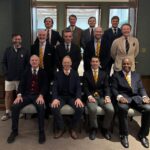
- Design, Politics and Discovery: A Solo Journey Across Europe
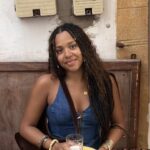
- Running for Mark: Barcelona Marathon Fundraiser
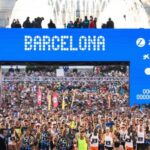
- Haileybury Society Bangkok Reunion
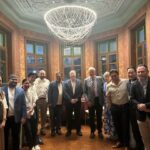
- SAVE THE DATE – concert by the Gents of St John’s College

Unless otherwise stated, all content and images on this website and blog © The Haileybury Society, 2024, all rights reserved
Search stories by date
| M | T | W | T | F | S | S |
|---|---|---|---|---|---|---|
| 1 | 2 | 3 | 4 | |||
| 5 | 6 | 7 | 8 | 9 | 10 | 11 |
| 12 | 13 | 14 | 15 | 16 | 17 | 18 |
| 19 | 20 | 21 | 22 | 23 | 24 | 25 |
| 26 | 27 | 28 | 29 | 30 | ||
Unless otherwise stated, all content and images on this website and blog © The Haileybury Society, 2024, all rights reserved
